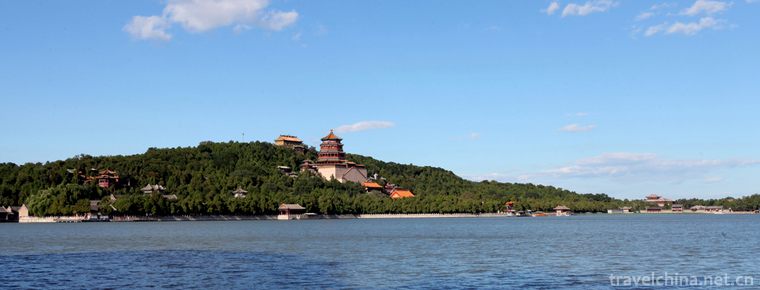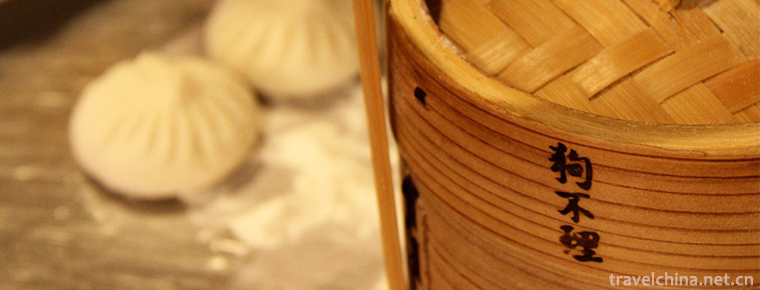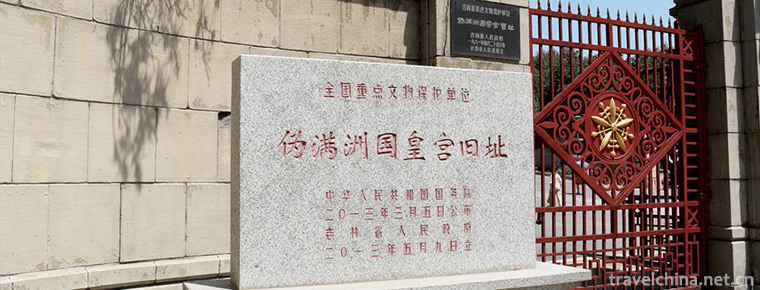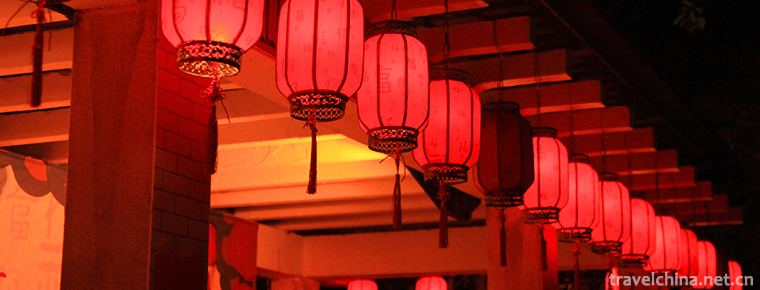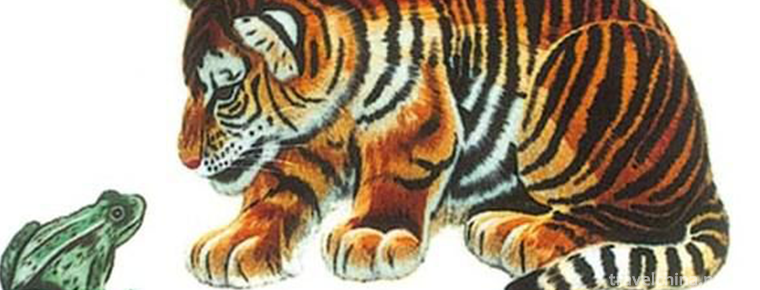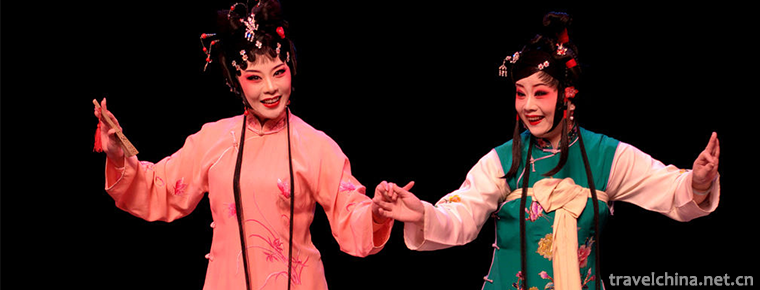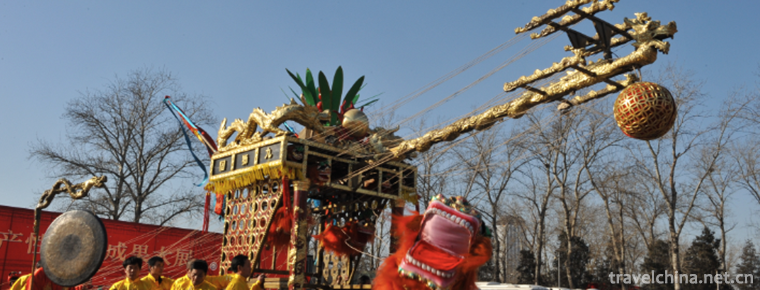Chen Duxiu May Fourth leader
Chen Duxiu May Fourth leader
Chen Duxiu (October 9, 1879 -1942 May 27th), formerly known as "Qing Tong", the official name is "Sheng Sheng", "Zhong Fu", "Shi Shi". Anhui Huaining (now Anqing People. Modern history of China Great Patriot Great Revolutionist and reformer Great democracy Great enlightenment Thinker He is New Culture Movement The initiator was the initiator of China's first ideological liberation movement in twentieth Century. The May 4th Movement Commander in chief is The May 4th Movement The ideological director; Marx doctrine Positive communicators; Communist Party of China The most important founder is the leading leader of the first generation of the Communist Party of China. It is the first profound summary and reflection in modern Chinese history. Soviet Union and Socialist Democracy Those who build experience and lessons.
In early 1920, he went to Shanghai. The Communist Party Early organization and initiation Communist Party of China In July 1921, he was elected secretary of the Central Bureau of the CPC and later became the Executive Committee of the Central Bureau. Chairman (two or three largest), Central General secretary (the four or five largest) And other positions, and served as the first to five Central Committee members. Left the Central Committee in July 1927. In November 1929, East China Road incident He was expelled from the party for different opinions. China was elected in May 1931. Tuo The central Secretary of the organization. October 1932 was National Government He was arrested and sentenced to prison in Nanjing. After the outbreak of the war of resistance against Japan, he was released from prison in August 1937. Wuhan Chongqing, last long lived in Chongqing (originally Sichuan) Jiangjin Died in May 1942. He is outstanding. Political commentator His political essays are incisive and sharp. To inform young people And many other chapters are rare and outstanding masterpieces in modern Chinese history. The study of philology in his later years is a very important academic achievement. The main works include "the only show," "selected articles by Chen Duxiu," and " Chen Duxiu's theory of thought "," Selected works of Chen Duxiu And so on.
Paul Mauriat's History
Personal experience
Chen Duxiu was born in a villa in the north of Anqing, Anhui Province in October 9, 1879 (five years).
1896 examination Scholar Entering Hangzhou in 1897 Qiushi Academy ( Zhejiang University Predecessor, learning, began to accept modern western ideology and culture. In 1899, the Academy was dismissed because of its anti - Qing theory.
In 1901, because of the anti propaganda campaign, it was wanted by the Qing government, and fled to Japan from Anqing and became a member of Tokyo Normal University. Assistance in Shanghai in July 1903 Zhang Shizhao Editor in chief National daily " Founded in Wuhu in early 1904. Anhui colloquial newspaper To propagate revolutionary ideas. In 1905, he organized the anti Qing secret revolution organization, vice president Wang. In 1907, he went to regular English school in Tokyo and then transferred to Waseda University. In the winter of 1909, he went to teach in the Army School of Zhejiang. Shortly after the revolution of 1911, he was appointed Secretary General of Dudu government in Anhui Province in 1911. In 1913, he joined in the two revolution of Yuan Shikai, and was arrested and sent to prison in 1914. He helped Zhang Shizhao establish Jiayin magazine.
1916 term Peking University School of Arts (equivalent to department head).
In 1918 and Li Dazhao founded the weekly commentary, advocating new culture and publicizing Marx doctrine, commonly known as "South Chen Bei Li". It is one of the main leaders of the "May 4" and "New Culture Movement".
In June 11, 1919, Chen Duxiu distributed himself on the streets of Beijing. Beijing citizen declaration He was arrested and sent to prison. The news spread quickly across the country, and letters from all circles and provinces communicated to Chen Duxiu. There are 69 academic bail Chen Duxiu in the academic circle. Among them are famous professors and ordinary secondary school teachers. Yes The May 4th Movement Tian Tong, a dissenting attitude, also sent letters and telegrams demanding immediate release of Chen Duxiu. Under pressure from all sides, Chen Duxiu regained his freedom. Hu Shi 6 years later, I still remember this matter. In December 1925, he mentioned this in a letter addressed to Chen Duxiu after the incident of the burning of the morning post in Beijing.
In 1920, Communist International With help, we first set up a communist party initiating organization in Shanghai to carry out party building activities. In March 24, 1921, Chen Duxiu was affected. Chen Jiong Ming The party was invited to establish in Guangdong. In July, held in Shanghai. The first National Congress of the Communist Party of China It was elected secretary of the Central Bureau: Chen Duxiu (July 1921, the first CPC election). Later, he was elected chairman of the second and third central executive committee of the Communist Party of China and general secretary of the fourth and Fifth Central Committee.
During the great revolution, Chen Duxiu repeatedly opposed the Communist International's instructions on cooperation between Kuomintang and the Communist Party (in order to ensure cooperation, the Comintern demanded that Communist Party members stay in the Kuomintang). However, due to the lack of a systematic and independent class guiding principle, Chen Duxiu and so on have been pressed down by the wrong administrative orders of the Communist International Leadership. The most intense one was after the Zhongshan ship incident in 1926, Chen Duxiu published an open letter in the party newspaper, unilaterally announcing his withdrawal from the Kuomintang, causing a sensation inside and outside the party. It is the central policy of the Comintern to ensure the strategic line of the cooperation between the Kuomintang and the Communist Party that the Communist Party members remain in the Kuomintang to take part in the discipline of the latter. The reason why the Communist International implemented this policy is at the entry of Baidu encyclopedia. But shortly after the leadership of the Communist International, the majority of CCP members continued to adhere to the old policies, and the dissidents, including Chen Duxiu, did not expect to break the line completely, and the proletarian party with separate lines, because they did not form another kind of international and domestic revolutionary program completely different from the Comintern. They did not even know that the Trotsky faction and the Stalin faction in the international leadership were fighting fiercely on the same Chinese revolution.
The failure of the great revolution had a strong impact on the Chinese Communist Party. A large number of excellent cadres (including Chen Duxiu's two sons) were killed in the counter revolutionary massacre, and the wave of defeat from 1927 to the beginning of 30s severely weakened the influence of the CPC on the urban workers. After the failure of the great revolution, the Comintern believed that Chen Duxiu's major failure was the main reason leading to the failure of the great revolution. Chen Duxiu refused to accept that he thought the great revolution had failed. As a general secretary, he was responsible. But the Comintern was more responsible. He was just a faithful executor of the Communist International. It was impossible for him to take all the responsibilities. Chen Duxiu was accused of committing "Right opportunism" and revoked Chen Duxiu's general secretary at the eight / Seven meeting in 1927. This planting is also the biggest injustice in the history of the Communist Party of China. Later, Chen Duxiu reflected in the gloom and began to accept the view of the international Trotsky school. He asked the Central Committee of the Communist Party to accept the route of the Communists, that is, to oppose the leftist insurrection line of Stalin doctrine, and to oppose the blind development to the rural areas and even to raise the guerrilla forces to the Red Army. (indeed, not only Chen Duxiu but also a large number of international and domestic Communists at that time underestimated the peasant movement), and advocated the national conference as the center, advocating the reunion of power from the struggle for democracy and democracy. In November 1929, because of the East China Road incident, the Communist International Far East Bureau explicitly asked the Central Committee of the Communist Party of China to put forward the slogan of "armed defense of the Soviet Union" and organized large-scale opposition to the Kuomintang and the mass demonstrations of the Soviet Union. In response, the CPC Central Committee made a positive response without hesitation. They held a political bureau meeting, decided to start all the propaganda machines, and demonstrated in the "anti imperialist day" in August 1st, and launched a general strike in Shanghai. For the practice of the Central Committee of the Communist Party of China, Chen Duxiu wrote a letter to the Central Committee of the Communist Party of China for criticizing, advocating the one-sided propaganda of "supporting the Soviet Union" against us. At the same time, we must not simply think that "the masses agree that the Soviet Union is a friend of China's Liberation". (Chen Duxiu, the letter to the Central Committee of the Communist Party of China, July 28, 1929, August 11th) for this reason, and in view of the fact that Chen Duxiu and others actually oppose the political line of the Central Committee of the Communist Party of China, the Central Committee of the Communist Party of China quickly resolved Chen Duxiu and others to be expelled from the party. (the Jiangsu Provincial Committee dismissed Peng Shuzhi, Wang Zekai, Ma Yufu, Cai Zhende and opposition opportunists within the party).
Tolorwsky's opposition resolution, October 20, 1929; "the Political Bureau of the Central Committee of the Communist Party of China has expelled Chen Duxiu's party membership and approved the resolution of the Jiangsu provincial Party committee to expel Peng Shuzhi, Wang Zekai, Ma Yufu and Cai Zhende." in November 15, 1929, the fifth book of the CPC Central Committee document, page 549-555. The Central Committee of the Communist Party of China clearly believes that Chen Duxiu and others' opinions on the issue of East China Road "are the most explicit manifestation of the positions of some shaken opportunist members within the party. (commentary on Chen Duxiu's letter), Chen Duxiu was expelled from the Communist Party of China. In December, Peng Shuzhi and 81 others published our political opinions, attacking the opportunist leadership of the Communist Party of China. At the same time, the "proletarian society" was established in Shanghai to publish the proletarian publication and publicize the views of the group. In 1932, in the battle of song Hu in Shanghai, he supported the war of resistance, condemned Jiang Jieshi's betrayal of dictatorship, and was arrested by the Kuomintang government. In August 1937, he was released from prison. He supported Kuomintang communist cooperation and Kuomintang led Anti Japanese war. He contacted democratic personages and anti Japanese forces in Wuhan and tried to organize the third forces, "no country and no Arab League." At that time, Chen Duxiu had deviated from the mission of the church, and was opposed by most Chinese schools, but still maintained relations with the Tuo group. In 1938, Wang Ming and Kang Sheng were framed as Japanese espionage and completely broke up with the CPC. In his later years, Chen Duxiu's final position was to establish a democratic regime and begin to reflect on Communist theory.
In May 27, 1942, Chen Duxiu died as a revolutionary soldier who struggled for the cause of proletariat for more than 20 years in Sichuan, Jiangjin. The main works include "the only show" and "Chen Duxiu's article".
Later stage of revolution
Abandoning the leadership of the peasants, the urban petty bourgeoisie and the middle bourgeoisie, especially giving up the leadership of the armed forces, and taking the policy of compromise and surrender to the attack of the Kuomintang rightists. The failure of the Chinese revolution in 1927 is also an important reason for his right deviation, except for the guidance from the Communist International. In mid July 1927, the Political Bureau of the Central Committee reorganized, and he left the central leadership post. Since then, he accepted the idea of "dispatch" and carried out activities in the form of small organizations within the party. In November 1929, he was expelled from the party because he published an open letter to the CPC Central Committee on the issue of Central East Road. In December of the same year, we published the "political submission", which was signed by 81 people as Chen's abolition programme. At the same time, it formed a proletarian society in Shanghai, a proletarian society. In May 1931, the "unified Congress" of all the small organizations in China was elected as the central Secretary of the Chinese Tuo group. In October 1932, he was arrested by the Kuomintang government in Shanghai and sentenced to prison in Nanjing's model prison.
the period of the war of Resistance Against Japan
After the outbreak of the war of resistance against Japan, he was released from prison in August 1937. He lived in Wuhan and Chongqing, and finally lived in Sichuan, Jiangjin (now Jiangjin District, Chongqing). In May 1942, he passed away in poverty and illness.
Personal thinking
politic view
1. democracy is "beyond the age" and "beyond class". It is the banner of "oppressed masses of every era against the privileges of a few privileges". "Bourgeois democracy and proletarian democracy are basically the same, but the scope of implementation is narrow." The future world will achieve "proletarian democracy and universal democracy".
2. socialism is a very long historical stage. The fundamental goal is to develop the economy and make the majority of the people happy. To build socialism, we must absorb the fruits of capitalist civilization, and we can not abolish private ownership right away. In the early years, we can allow many kinds of economic components, while state capitalism is the main one.
3. affirming "early" Soviet Russia, negating "late" Soviet Russia. Stalin's terrorist dictatorship in Soviet Russia was caused by the Soviet system rather than the personal quality; "any arbitrary dictatorship and bureaucratic politics which are cruel, deceived, deceived, corrupted and corrupted can not be separated". Without democracy, there will be no socialism; political democracy and economic socialism are different, but Stalin style bureaucracy must never create socialism; the Soviet Union is no longer socialism.
The 4. world war can not lead to revolution, and the colonies can not get liberation and independence. "If Germany and Russia triumph, mankind will be darker for at least half a century. If victory belongs to Britain, France and the United States, and maintain bourgeois democracy, if we can make efforts to renew ourselves, no longer harboring corruption, we may restore our former semi colonial status. If victory belongs to Germany, Italy and Japan, we will inevitably fall into colonies."
5., give up faith in Lenin doctrine and Trotsky doctrine.
View of literature and art
Chen Duxiu's point of view is that literature should be centered on love, and should be beautiful rather than practical. He once had the language of "beautiful and useless literature", and Qian Xuantong questioned whether the two words of "useless" were in conflict with the consistent idea. In fact, this "useless" two words express Chen's important concept of article. The so-called "useless", that is, no practical meaning, is not worthless. The article distinguishes itself from literature and draws a clear line between practicality and inpracticability. It should be simple and useful, and eliminate the bad writing style of "flattery, hypocrisy and extravagant aristocratic classical literature". After the Wei and Jin Dynasties, the tendency of parallelism in application became more and more obvious, and there was a tendency of not being able to write. There was an attempt to reverse this ethos by the ancient writers in Tang and Song dynasties. Their strategy was not to promote the development of novels, but also to reduce the aesthetic function of applied writing. Therefore, both the parallel prose and ancient prose have failed to bring the applied style to the direction of healthy development. Chen Duxiu pointed out sharply: "the epitaph of the inscription is the most important thing, and the reader will never believe it. The author will follow it as usual. There are various kinds of flattery in the beginning and end. Those who mourn are the delicious food of Hua Ju. To give a doctor a plaque, not to say that he has crossed the yellow line, is to say "Cheng Chun". Chen Duxiu is well versed in the disadvantages, and proposes to divide the applied literature and literature thoroughly. New Youth My colleagues agreed. through Qian Xuan Tong , Liu ban Nong The further argumentation is fully practical. (from the 1994 fourth issue of "applied writing" forty-fifth pages "54" modern development of applied literature)
Personal works
An anthology
The main works include "the only show," "selected articles by Chen Duxiu", "Chen Duxiu thought" and "selected works of Chen Duxiu".
In the 1984-1993 years, three volumes of selected works of Chen Duxiu were published by Shanghai people's publishing house. Editor's note, written in the December 1991 "editorial note", said: "for Chen Duxiu's defamation of the Communist Party of China, the slander of the workers' and peasants' Red Army and the opposition to rural encircling the city's revolutionary road, the book is not recorded in the full text for readers to study and criticize." Between the lines, the "criticism" remains intact, and there is no lack of self-protection.
In January 2009, the Shanghai people's Publishing House launched the six volume of the selected works of Chen Duxiu, with 890 articles and 272 words. Compared with the original three volumes of more than 600 articles, 162 words, more than more than 200, 115 million words. There are thousands of mistakes in correcting old mistakes. The new works are mainly archival documents, newly discovered articles, letters, and works in phonology and philology. Among them, Chen Duxiu presided over the special committee before and after the third armed uprising in Shanghai, the 54 articles written in Wang Yuanfang's prison to Wang Yuanfang, and nearly 100 letters written to Tai Jing, et al.
Selected works of Chen Duxiu, volume sixth, income Chen Duxiu phonology works "ancient Yin Yin Yang into the use case table", "Lian Lian Bian Bian" and his students, linguist Wei Jiangong letters. The writings of philology include letters from primary school literacy, letters to Tai Jing Nong, Chen Lifu, Chen Kezhong and others.
Primary school literacy is a masterpiece of Chen Duxiu's Philology. A draft of the Chinese phonetic alphabet written in 1929 was sold to the commercial press. At that time, Chen Duxiu was the "leader of the Communist Party" wanted by the authorities. During his stay in Sichuan, Chen Duxiu wrote "primary school literacy textbook" on the basis of "Shi an" and "literacy". It was originally published by the Ministry of education of the national government, and the two advance payment was ten thousand yuan. Chen Lifu, Minister of education, thinks that the two words of "primary school" are not correct. It is suggested to change the title of the book to Chinese characters. Chen Duxiu's "primary school" is the ancient name of phonology and philology. It is also his characteristic of studying the unity of the three forms, the sound and the meaning, rather than the separation of the three, and refuses to change the title of the book. This book can not be published, so that his family can not use remuneration. The manuscript of primary school literacy is awarded to experts by 50 copies of the national compilation hall. Liang Shiqiu got a book and was very cherished. He took him to Taiwan in the future. He asked someone to draw a clear picture of the handwriting, and photocopied 500 volumes. It will take another time to redraw the whole manuscript in October.
The title of the book was translated into the new text of the text, and the author's name and autobiography were replaced by Liang Shu, which was photocopied by the Taiwan language research center in 1971. Liang told friends in private, this is Chen Duxiu's posthumous work. "Primary school literacy" was handed down, and Liang's achievements were great.
In prison, Chen Duxiu wrote "Xunzi rhyme table and textual research", "Shi an Zi Shuo", "Lao Zi Xue Lue", "ancient Chinese pronunciation has compound initials", "ancient Yin Yin Yang into mutual use case table", "Lian Lian Bian Bian", "Qu Song rhyme table and textual research", "Jin Lu Jing Yun Ji Mu", "Yin Yin Deng Shi Shan Shan", "dry branch is the letter" and so on.
Calligraphy
Chen Duxiu's theory of calligraphy is widely spread. That is, Mr. Shen Yinmo, a calligrapher we all know, was inspired by Chen Duxiu's phrase in the early years, and became a master of the generation. At that time, Chen and Shen were not familiar with it, but Chen Duxiu, who was straightforward and cheerful, met for the first time. He said to his face, "I saw your poem on Liu Sanbi yesterday, the poem is very good, but the word is vulgar in the bone. Poetry is in heaven, and words are on the ground. Liu three is Liu Jiping, a famous scholar in the south of the Yangtze River. At that time, Liu three and Su Manshu and Chen Duxiu and Shen Yinmo were all famous scholars who came back from studying abroad. Shen Yinmo did not disagree with Chen's criticism. Instead, Shen went to teach in Peking University. He also recommended Chen to President Cai Yuanpei, and he was appointed to the post of liberal arts. Chen Duxiu's criticism of Shen Yinmo's "vulgar in bone" actually reveals his own calligraphic aesthetics. Calligraphy, which is generally regarded as calligraphy, is easy to slip into "kitsch" if there is no solid northern Monument and the pen is dull and weak. This view is also consistent with that of the late Qing Dynasty. However, even though Shen Yinmo's calligraphy has reached a very high level, Chen Duxiu still retains his original opinion when he affirms. In his letter to Tai Jing Nong in 1941, he said, "Yin Ming is always very capable and can not be seen by friends who are not friends, but there is no difference between them, as it was thirty years ago. The characters of the two kings are mostly near the truth, and the words of Xi are mostly rice Nangong. The charm is still under the Lanting Pavilion of Ou Chu, and it is intended to be learned immediately. In contrast, Chen Duxiu's own calligraphy is a combination of rubbings and inscriptions.
poetry
Crying Wang Xi Yan
When the evil comes, tears will be seen. A hero is sad at first and does not go to the battlefield to die for his country.
History is dark for three thousand years and compatriots are four hundred trillion. Now the * * * men need to kill two young people.
Shou Chun advocates righteousness, and today Huainan deserves people. Speaking of the new federal system, there will be a lasting regret.
"Xixiang South Island hunting map"
All kings and kings are not alike. Rulers do not leave behind hate, but seek for freedom.
It is good for the sheep and the hog. Men are the only sword in their lives.
"Ji Wu Yin Deng Shi Shan Shan"
The history of the sea, the passing of the Jinghong, the reading of Feng Tang, the autumn do not respond to the cicadas, squeak, the sitting alone, and the summit of the peak.
All mortal beings, I am like old people, I hate Guo Kai, and I do not hesitate to be honest and miserable.
After experiencing political ups and downs, Chen Duxiu released his prison in Nanjing in his later years. He declined the invitation of Gao Guan and Lu, and lived in Sichuan, Nanjing. In the meantime, the hobby of calligraphy has never been slack. Even in the year before his death, when he learned that Ouyang did not treasure the monument of the flourish of the official script of the Eastern Han Dynasty, the poem was replaced by the poem, and he had no "borrow" to Ouyang. In the evening, every family is full of ducks and ducks. After Ouyang got his poem, he had to give up his love to fulfill his wish. In addition, in his later years, he wrote a monographs of primary school literacy, especially with a lot of energy, but when the manuscript was sent to trial, Chen Lifu, the Minister of education, thought that the title of the book was wrong, and that Chen Duxiu should change the title of the book. Chen Duxiu resolutely disagreed, and said, "one word can not move", the advance payment of eight thousand yuan also returned. At the end of 1942, Chen Duxiu died of illness. The book "primary school literacy" has not yet been published, which has become a great regret for his later years.
His poems can be divided into three categories:
(1) Expressing Ideal ambition and criticizing the dark reality.
The early "night rain song", "Shen two", "far away" and "golden powder tears" in late years, 56 and long five character poem "tell the youth". The four poems of chanting crane, the "sentimental" and the "twenty feelings" are deeply placed in the sustenance. When we feel hurt, we should be attributed to this kind of expression. The earliest work was entitled "Xixiang Nan Zhou hunting map", which was published in Shanghai national daily daily in August 17, 1903.
(2) to mourn relatives and reward friends.
In the early years, Meng Jiji's "silent sorrow" and "old big sister" in his later years are all the five ancient times. They respectively describe the life process of the poet and his elder brother in distress, and express their deep grief and great pain from the heart.
(3) landscape tour and scenery theme chant.
The description of scenic spots and four seasons is a great mass of traditional poetry, and artistic beauty is the most outstanding. In the book of Chen Duxiu's poetry, there are such works in early and late years, which are very artistic. The earliest landscape poem is eight poems of Huayan waterfall.
Relationship
· Originally Gao Xiaolan (Gao Dazhong) (1876 -1930 September 9th), Lu'an, Anhui, Huoqiu, Lin Huai villagers, the late Qing Dynasty, Anhui, the deputy commander of the high school of women, has three sons and one daughter. Died in Anqing.
· Spouse Gao Jun man (Gao Xiaozhong) (1888 -1931), Gao Xiaolan's half sister. There are two sons and one daughter. Died in Nanjing.
· Spouse Pan Lanzhen (1908 -1949), Nantong, Jiangsu, died of illness due to Shanghai, no children. There was a foster daughter, Pan Fengxian, who lived in Shanghai.
· Chen Yannian, the eldest son (-1927 1898), was a member of the CPC Central Committee and alternate member of the Political Bureau, and Secretary of the District Committee of Guangdong, Zhejiang and Jiangsu. The son of Gao Xiaolan.
· The eldest daughter Chen Yuying (Chen Xiaoxiu) (1900 -1928) died in Shanghai.
· The second son, Chen Qiaonian (1902 -1928), was a member of the CPC Central Committee, Minister of the Organization Department of the Northern District Committee of the CPC, Minister of the Organization Department of the Hubei provincial Party committee, Secretary of the Hubei provincial Party committee and Minister of the Jiangsu provincial Party committee. In June 6, 1928, Chen Qiaonian was in the corner of Fenglin bridge in Longhua, Shanghai.
· Chen Guangmei, the three son (-1999 1907), has long lived in seclusion. Because of historical reasons, this son has never admitted that he is Chen Duxiu's son.
· The four child, Chen Songnian (1910 -1990), was a member of the Standing Committee of the Anqing Municipal Committee of the Chinese people's Political Consultative Conference (CPPCC), a librarian of the Anqing Museum of history and culture, and a librarian of the Anhui Museum of history.
· Chen Zimei, a young girl (1912 -2004), an obstetrician. After the cultural revolution, he traveled to the United States and Canada through Hongkong, and later practising medicine in the United States. After her death, Cui Aimin, Vice Consul General of China in New York, went to condolence.
· Chen Henian, the youngest son (1913 -2000), was born with his sister Chen Zimei as a mother. His mother was Gao Jun man and his wife Xu Xin Xin. It was one of Peking University's "three university leaders" at that time. At the end of 1938, Chen Henian went to Hongkong with his wife and children and returned to the mainland during the war of resistance against Japan. After the victory of the war of resistance against Japan, he once again brought his family to Hongkong to work in Sing Tao Daily.
· Chen Zhongjin, a grandson (father unknown), has participated in the third corps of the first regiment of the military committee wartime cadre training team during the war of resistance against Japan, and later said that his grandfather said to him, "never engage in politics."
· Pan Fengxian, the adopted daughter, is living in Yangpu District, Shanghai, with Pan Lanzhen's surname.
Personal influence
The First, he was the initiator of the new culture movement and the first emancipation movement of China in twentieth Century.
An advocate of action. In the history of China, he first raised the banner of democracy and science, which had a great impact on the development of modern Chinese history, and is still affecting the process of Chinese history. The magazine "New Youth", founded by him, is the most influential journal in modern Chinese history. It has educated and guided a whole generation.
Second, he is the commander in chief of the 54 Movement and the 54 movement leader. 54 sports can be so influential in modern Chinese history that it is inseparable from his activities, guidance and influence. While highly appraised the 54 sports historical achievements, we must not forget Chen Duxiu's great historical achievements.
Third, he is an active communicator of Marx doctrine. Although he spread Marx doctrine without Li Dazhao, his new youth magazine was the main front to spread Marx doctrine at that time. Its important role is that no other newspaper can replace it.
Fourth, he is the most important founder of the Communist Party of China. Chen Duxiu is one of the founders of the Communist Party of China. Without Chen Duxiu, there would be no establishment of the Communist Party of China in 1921. Just this one, he can live forever.
Fifth, he is the most important leader of the first generation of collective leadership of the Communist Party of China.
Sixth, he is the first person in the history of modern China to sum up and reflect on the experiences and lessons of the Soviet Union and socialist democratic politics. Working with Sun Zhongshan.
Character evaluation
General comment
Chen Duxiu is an outstanding political commentator in modern Chinese history. Chen Duxiu is an outstanding expert and scholar in modern Chinese history. In his life, Chen Duxiu devoted himself to the public, open and aboveboard, did not engage in intrigues and intrigues, and did not use power to seek personal gain. Even in the late years of hardship, he did not accept the gifts of the enemy, showing a revolutionary strong backbone and noble personality. As an intellectual, he has never compromised in his life. He resolutely exposes and criticizes old systems, old ideas, old culture and social ills. It represents the conscience of the society and has made an exemplary example for future generations.
The new history of the Communist Party of China changed Chen Duxiu's mistakes in the failure of the great revolution from "right capitulation" to "Right opportunism". Why have we dug out the two key words of "surrender"? Shi Zhongquan, deputy director of the Central Party History Research Office of the CPC Central Committee, said: "as a symbol of Chen Duxiu's serious rightist error, concessions to the Kuomintang's" two big ", Zhongshan ship incident, sorting out party affairs and other issues, such as Jiang Jieshi, Wang Jingwei and so on, as well as not paying attention to the party's direct grasp of armed thinking are all greatly influenced by the Comintern. "Therefore, the Communist International, the Communist Party of China (CPC) and its representatives in China have an inescapable responsibility for the serious setbacks suffered by the Chinese revolution."
In 1991, Hu Shengyu published in the eleventh issue of "academic monthly" that "the history of Chinese Communist Party can not be without Chen Duxiu". He pointed out: "Chen Duxiu's life, if he participated in the anti Qing movement in 1900 and failed in the 1927 revolution, he had fought for 27 years for the Chinese people's liberation cause, and made much more contributions than his predecessors and peers. In the last 15 years of his life, in the quagmire of old China, Chen Duxiu still stumbled forward, though he stumbled, sometimes wandered and sometimes wrestled, but after all, he did not become a traitor, not a traitor, and did nothing to harm the great national dignity and great personality of our great nation.
Personal evaluation
As Chen Duxiu's former comrade in arms, following the Chen Duxiu, Qu Qiubai, Li Lisan, Xiang Zhongfa, Bo Gu, Zhang Wentian after the supreme leader of the Chinese Communist Party, Mao Zedong has repeatedly talked about life. It is mainly concentrated in three periods.
First, in the middle and late 1930s. Mao Zedong mainly talked about Chen Duxiu from two aspects.
1. leaders of the new culture movement, those who have great influence on themselves. In the period of the new culture movement, Mao Zedong recognized Chen Duxiu as "the star of the ideological world". Mao Zedong's view did not change fundamentally after the failure of the great revolution. In 1936, when Mao Zedong was invited to talk about his early experience, he repeatedly mentioned Chen Duxiu in a respectful tone. He said he was very much worshipped by Chen Duxiu and Hu Shi, "they have become my models." "When I was in Peking University, he might have more influence on me than anyone else there gave me."
2. alert the whole party to bear in mind the lessons of history. While acknowledging Chen Duxiu's achievements, Mao Zedong, who had experienced the bloody revolution, never forgot the great loss that Chen Duxiu suffered from giving up the party's leadership. Especially in the late 1930s, because of the great influence of Wang Ming's rightist thought on the party, Mao Zedong talked about Chen Duxiu, more focused on reminding the whole party to be vigilant against the right deviation, and asked the whole party to bear in mind the lessons of history. When Snow asked Mao Zedong to evaluate the history of the failure of the great revolution, Mao Zedong did not hesitate to attribute his greatest guilt to Chen Duxiu, and thought that his "shaken opportunism, in further compromises, meant the end of the disaster, and that the party lost its decisive leadership and its own line". Even thought, "Chen Duxiu is an unconscious traitor." During the second Kuomintang communist cooperation period, Mao Zedong pointed out many times that Chen Duxiu's capitulation led to the failure of the revolution at that time and warned that every Communist should not forget the lesson of blood in history.
The two is before and after the Seventh National Congress of the Communist Party of China. Mao Zedong talked about Chen Duxiu from the perspective of further summarizing the party's historical experience.
1. the commander in chief of the 54 Movement has made great contributions to the party. Before and after the Seventh National Congress, Mao Zedong said many times that he was a student of the generation of Chen Duxiu. In March 30, 1942, Mao Zedong spoke at the Central Committee of the Communist Party of China learning group: "Chen Duxiu is commander in chief of the 54 Movement. This is not the time for us to publicize Chen Duxiu's history. In the future, we will make a contribution to Chinese history. In April 21st, when Mao Zedong spoke about the seven principles of work, he said, "we can talk about Chen Duxiu today. He has done credit. He was the commander in chief of the 54 sports era, and he led the whole movement. He has played a great role in dealing with a group of people, such as Comrade Li Dazhao. "When it comes to Chen Duxiu, the future of party history, we need to talk about him."
2., reflect on the whole Party's summing up and handling of the lessons of Chen Duxiu's question, and ask for "dealing with the past and curing the disease and saving the people" when dealing with historical problems. On the eve of the Seventh National Congress, Mao Zedong reflected on the party's experience and lessons in dealing with Chen Duxiu's historical issues, and put forward the basic principles of fighting against the erroneous line within the party. First, when fighting against the erroneous line within the party, we should emphasize the wrong social causes rather than emphasize individual problems. In dealing with historical issues, "we should not focus on the responsibilities of some individual comrades, but instead focus on the analysis of the environment at that time, the wrong contents at that time, the wrong social roots, historical roots and ideological roots at that time. We should carry out the principle of punishment before and after, and cure the disease and save the people, so as to achieve two purposes, namely, to clear the mind and unite comrades. It is a sign of our party's prosperity and development that we should take a cautious attitude towards dealing with people's problems. Second, it is to fight against the wrong path, and its purpose is to punish the past and cure the disease and save the people. "During the civil war, it was not good to be simple and unwilling to work with people who had committed the wrong path. "Any comrade who has made mistakes in the past, as long as he has understood and begun to correct his mistakes, should not welcome him in a preconceived way, and unite him to work for the party. Even if we have not yet understood and corrected the mistakes correctly, comrades who have not persisted in their mistakes should help him understand and correct their mistakes in a sincere comrade's manner.
However, affirming Chen Duxiu's historical achievements does not mean that he can erase his mistakes. Before and after the Seventh National Congress, Mao Zedong repeatedly reminded the whole party to bear in mind Chen Duxiu's mistakes. In the oral political report of the Seventh National Congress of the Communist Party of China, Mao Zedong severely accused Chen Duxiu of "not understanding Marx doctrine". "In the late stage of the great revolution, there should be no Marx doctrine." In April 20, 1945, the CPC adopted the "resolution on certain historical issues" formally adopted by the CPC in the seventh Plenary Session of the 6th CPC Central Committee (the second meeting of the Communist Party of China in August 9th of the same year). In the form of the central resolution, it passed the "Chen Duxiu right capitulation line", which had an important influence on the subsequent CPC's evaluation of Chen Duxiu.
The three is twentieth Century 50s and 60s. During this period, Mao Zedong talked about Chen Duxiu, using the words of "big traitor" and "negative teacher", but his criticism focused on the activities of his party "splittist" splitting the party, not a total negation.
In February 1955, Mao Zedong In the " Deng Xiaoping As for the revised draft report on Gao Gang and Rao Shu Shi's anti party alliance, we wrote "our party has appeared the famous traitors such as Chen Duxiu and Zhang Guotao, who are the agents of the class enemies in our party". In July 14, 1956, when Mao Zedong spoke with Guatemala's former president Arbenz, Chen Duxiu and Jiang Jieshi, Li Lisan, Wang Ming, Zhang Guotao and Gao Gang were listed as "negative teachers".
The main reason for Mao Zedong's evaluation is that he has never forgotten the lesson of Chen Duxiu's right deviation in bringing blood to the party, especially the mistake of Chen Duxiu's establishment of the post in the later period and deviating from the correct path of the Chinese revolution. The emergence of the alliance of high and Rao anti Party led Mao Zedong to once again wake up Chen Duxiu's activities of "engaging in" and "splitting". In his view, for such a group of people, "can not help attitude, because they are incorrigible". Therefore, "can only be knocked down". However, it is worth noting that even in this case, in 1953, Mao Zedong, who visited Anhui, specifically asked local governments to take care of the lives of Chen Duxiu's descendants. Accordingly, the local government confirmed the status of martyrs of Chen Yannian and Chen Qiaonian, issued martyrs' certificates, and the three sons Chen Songnian and their children of Chen Duxiu were also taken care of accordingly.
Commemoration of future generations
Former Residence
Heshan Ping Shi wall hospital is located in the southern suburb of Jiangjin, Chongqing. It was originally a private residence of Yang's squire. During the war of resistance against Japan, Chen Duxiu spent the last sixty-four years of his life here. Since then, the stone wall courtyard has attracted much attention as an objective carrier of Mr. Chen Duxiu's life in his later years.
Cemetery
Chen Duxiu was buried on a sloping field on Ye Jia Chong, ten mile Township, north gate of Anqing. This is the tomb of Chen Duxiu's coffin after he moved from Sichuan Jiangjin to his hometown in 1947, and was matched with the wife Gao Xiaolan of the original wife. After a protective maintenance in 2001, the total area was 1058.85 square meters. The tomb is facing the south, consisting of tombs, tombstones, tombs, guardrails, and tomb roads. The tomb is 4 meters high, with a diameter of 7 meters, and a white marble veneer. The tombstone is 2.4 meters high and the monument is 1.8 meters tall. The tomb is two stories, square, 2.4 meters high, surrounded by white marble railing. The southern steps of the tomb are connected with the tomb road with a length of 30 meters and a width of 6 meters. On both sides of the tomb, 32 cedar trees were arranged, representing Chen Duxiu's 64 spring and Autumn Periods. 5 of the Dragon cypress pine trees represented him once the general secretary of the Communist Party of China and the chairman of the Executive Committee.

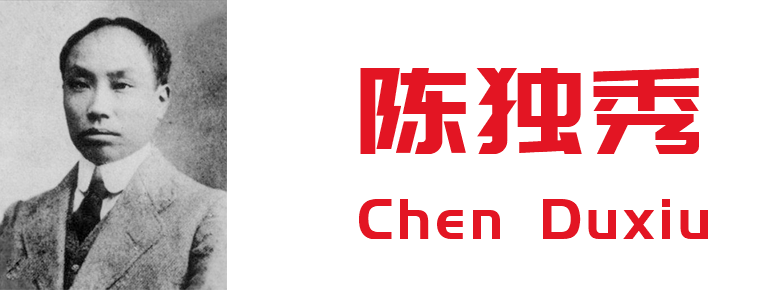
-
stired egg and tomato
Scrambled eggs with tomatoes, also known as tomato scrambled eggs, is a common popular dish among many people's families. The cooking method is simple and easy to learn, and the nutrition is reasonabl.
Views: 208 Time 2018-10-27 -
Mountain Yuntai
Yuntai Mountain is a world geological park, national AAAAA-class tourist attraction and national scenic spot, located at the junction of Xiuwu County in Jiaozuo City, Henan Province.
Views: 145 Time 2018-10-29 -
Go BelieveGoubuli baozi
Goubuli steamed bun is a snack made of flour, pork and other materials. It was founded in 1858 (Xianfeng period of the Qing Dynasty). .
Views: 162 Time 2018-11-14 -
The Museum of the Imperial Palace of Manchukuo
The Museum of the Imperial Palace of “Manchukuo†is located in Guangfubei Road, Kuancheng District, Changchun City. It is a Palace Ruins Museum built on the site of the Puppet Manchu Palac.
Views: 230 Time 2018-12-05 -
Yuexiu Park Guangzhou
Yuexiu Park is the largest comprehensive park in Guangzhou. The main body of Yuexiu Park is Yuexiu Mountain. In the Western Han Dynasty, Zhao Tuo, the king of South Vietnam, was named after the ".
Views: 120 Time 2019-01-13 -
Eight Delicacies Rice
The traditional name of Ningbo is Laba Festival Food. It is made from raw materials such as glutinous rice, bean paste, jujube paste, preserved fruit, lotus seed, rice kernel, longan, sugar and pig fa.
Views: 156 Time 2019-03-25 -
Bian Embroidery
Bian embroidery, one of the traditional Chinese embroidery techniques, has a long history and is known as "national treasure". It is famous for its exquisite embroidery,.
Views: 331 Time 2019-04-04 -
Legend of Chen Sanwuniang
Li Jing Ji of Chen Sanwuniang is an ancient folklore, belonging to the legendary works of Ming Dynasty in China. The author has lost his life in Quanzhou (Chen Sang) of Fujian Province.
Views: 106 Time 2019-04-16 -
Guilin fishing drum
Guilin fishing drum, commonly known as sentiment, is the local traditional rap and singing art of Guilin. The Song Dynasty was introduced into Guilin from the north, .
Views: 145 Time 2019-05-02 -
Line lion
Line lion is a local traditional lion dance in Ningde City, Fujian Province. Shiqiaotou village's line lion nine lions map originated from the celebration of the Lantern Festival on the 15th day of th.
Views: 199 Time 2019-07-03 -
Wawu mountain
Wawu Mountain National Forest Park is under the administration of Hongya County, Meishan City, along the western edge of Sichuan Basin. It is 180 km away from Chengdu and covers an area of 1.05 million mu. .
Views: 291 Time 2020-10-15
